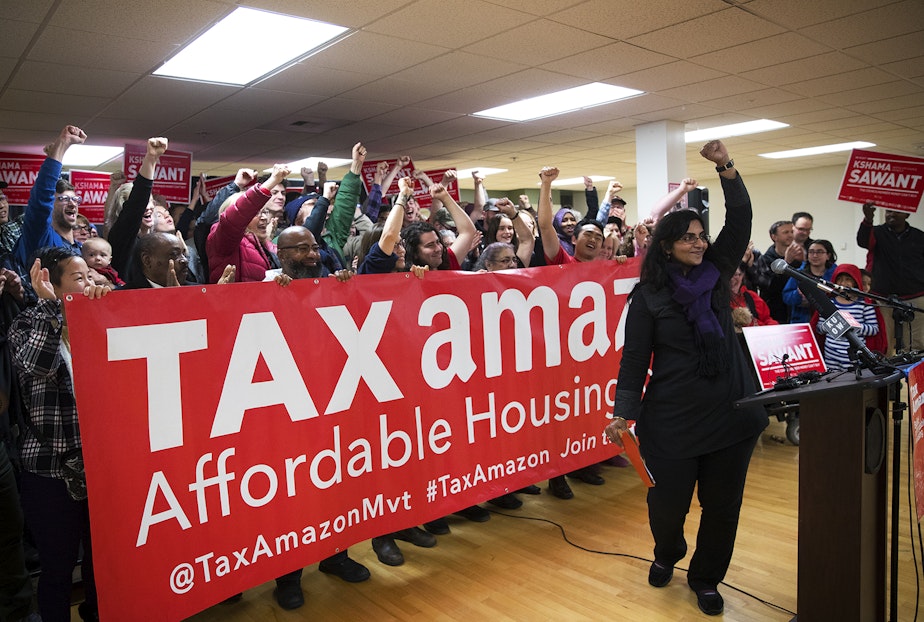Seattle's socialist rockstar Kshama Sawant has almost left the building. Here's how she changed Seattle politics
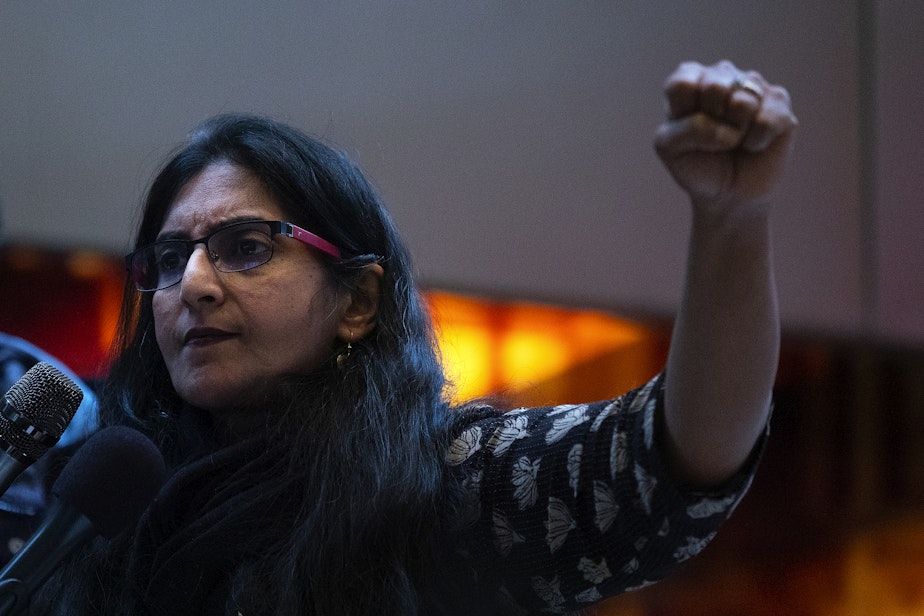
Seattle’s most famous and controversial elected official, Kshama Sawant, is headed for the exits in January after a decade on the City Council. In that time, she’s managed to win three elections and survive a bitter recall campaign.
Sawant told KUOW the key to her success from the start was refusing to compromise and staying true to her socialist principles.
“We had any number of well-meaning political people telling us, 'Don't run openly as a socialist, don't call yourself a socialist,’ Sawant said. But she ignored that advice and railed against capitalism on the stump to win her first Seattle race in 2013.
The win made Sawant one of the only openly socialist candidates ever elected in Seattle, and one of very few serving in local office at the time anywhere in the United States.
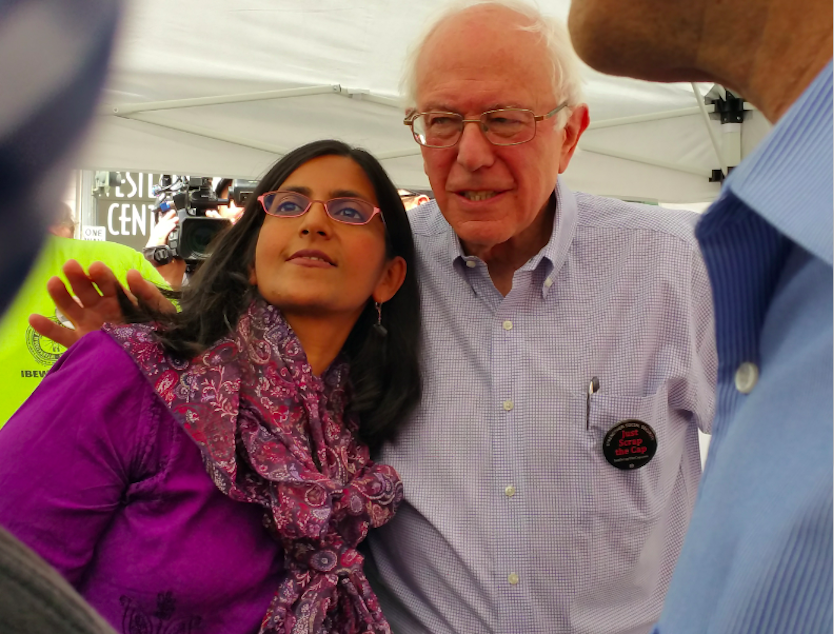
“That was very rare. It was so rare that it became national news and international news,” said John Nichols, a reporter for The Nation magazine who has written about Sawant and the history of socialism.
Today, there are dozens of socialists serving as lawmakers across the country, and Sawant deserves some credit for showing them the way, Nichols said.
Sponsored
“Here you had this City Council member who was doing it at the local level. And while it might seem hard to break through at the national level, there was a dawning sense that it would be possible to break through at the municipal level,” he said.

Nichols argues that Sawant's national influence didn’t end there. He said her style of governance, which he calls “a sort of permanent activism” has spread to other cities.
It was a two-fold approach in Sawant’s case. When Sawant made speeches in favor of rent control or hiking the minimum wage, she would frequently denounce her colleagues as capitalist tools of big business if they disagreed with her. Meanwhile, members of her revolutionary Marxist political party Socialist Alternative would flood City Hall in support.
If council members spoke to defend themselves, the crowd would sometimes interrupt with shouts or chants of “shame, shame, shame.”
Sponsored
The approach was a major departure from the more genteel, consensus-driven style of politics that held sway in prior decades. And it didn’t always land well.
Former Councilmember Jean Godden put it bluntly.
“She was extremely difficult to get along with,” Godden said of Sawant.
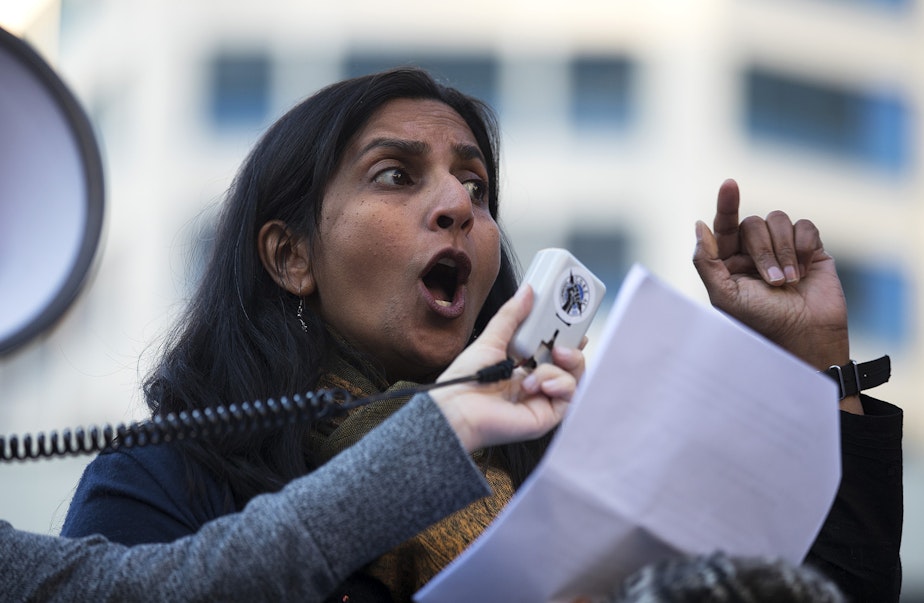
Former Councilmember Nick Licata, who often voted with Sawant, credits her approach with building grassroots pressure to pass legislation, including a historic vote in 2014 to put Seattle on track to have the highest minimum wage of any major city in the United States.
Sponsored
“She and Socialist Alternative played a critical role, basically grabbing the establishment by the collars and saying, ‘We need to raise our wages, they're too low to survive on,’” Licata said.
But Licata also told KUOW he thinks Sawant would have been more effective at getting progressive legislation passed by compromising more and attacking her colleagues on the council less.
During the unanimous vote to hike the minimum wage in 2014, Seattle Mayor Bruce Harrell, who then served with Sawant on council, became visibly irritated with all the interruptions and insults from the crowd.
“We're sellouts to big business? That’s crap, that's absolutely crap,” Harrell said at the time.
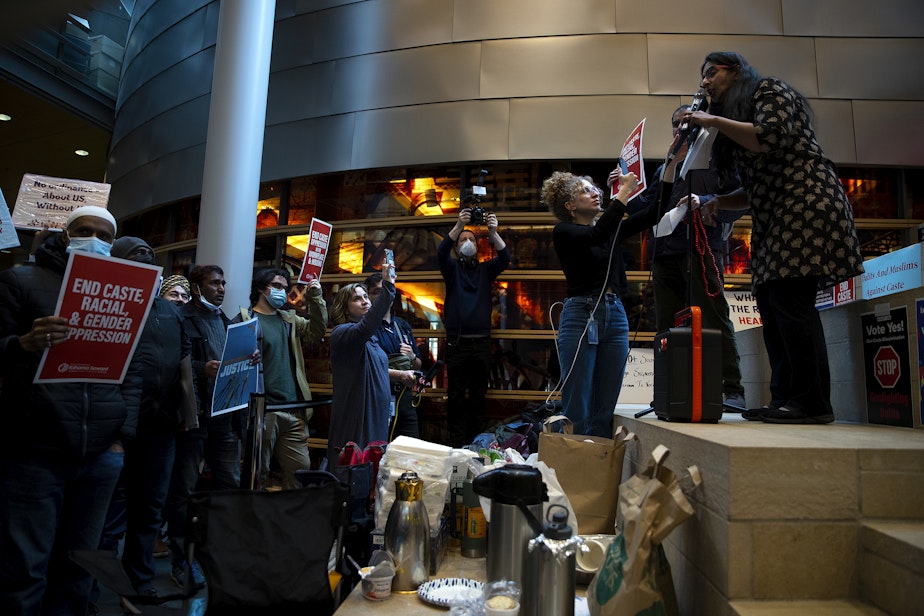
Sponsored
For her part, Sawant told KUOW compromise doesn’t work, and even expressed some qualified admiration for the tactics of the MAGA Freedom Caucus in Congress.
“Where the Freedom Caucus comes in is that they are using this tactic of refusing to compromise. How about the left actually having that courage and really fighting hard for what working people need?” she said.
In addition, Sawant said the job on City Council was never just about passing progressive legislation but about trying to help build a larger socialist workers’ movement.
Now, as Sawant leaves voluntarily after three terms, she tells KUOW her allies at Socialist Alternative will keep up the fight, including flooding city hall when the moment arises.
Sponsored
“I don't see that ending, it will depend on the kinds of issues that working people are willing to mobilize. If that happens, then absolutely we will be there with them,” she said.
Sawant and Socialist Alternative have also launched a new effort called Workers Strike Back to fight at the national level for issues like higher wages.
In Seattle, the minimum wage will hit nearly $20 an hour in January – the highest of any major city in the United States. Sawant gets some credit for that, too.
